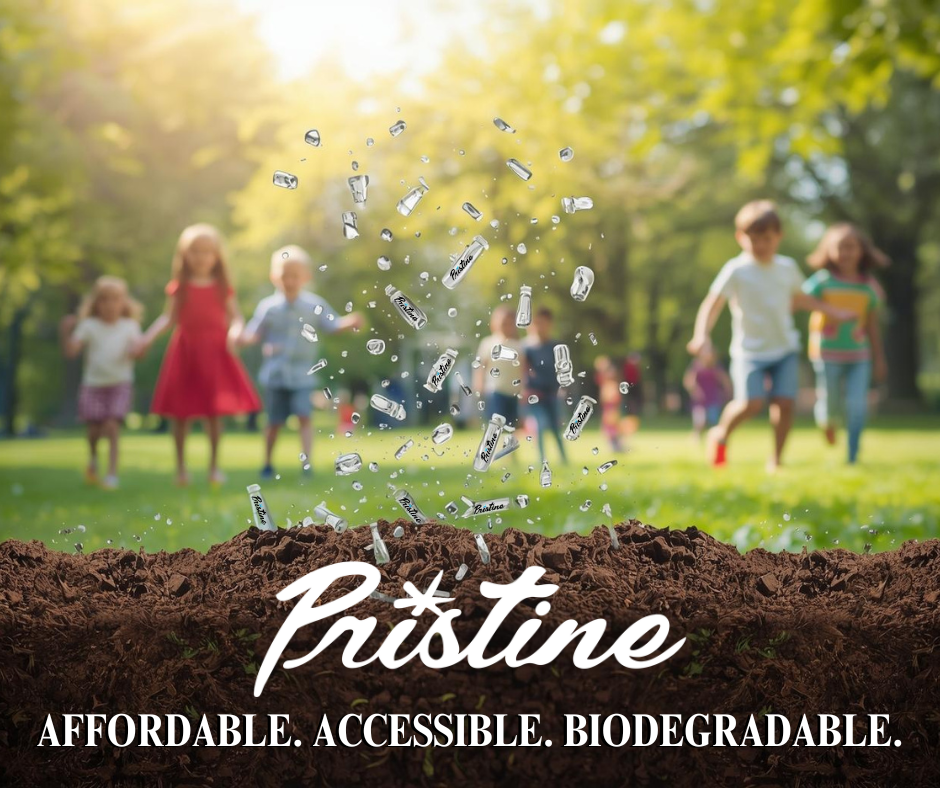Confusing Labels, Real Consequences
Walk into any store today and you’ll see products labeled “compostable,” “biodegradable,” or even “eco-friendly,” but what do those terms actually mean, and why does the distinction matter? With new state packaging regulations rolling out across the U.S., understanding the difference is more important than ever. Misleading labels confuse consumers.
Compostable vs. Biodegradable
Compostable: Designed to break down in controlled, industrial composting facilities under specific conditions like high heat and moisture. If the right facilities aren’t available, compostable products may end up lasting just as long as traditional plastics in a landfill.
Biodegradable: Materials that break down naturally through microbial activity in a wider range of environments (soil, water, and even landfills) without needing special infrastructure.
While both are better than traditional plastics, only biodegradable solutions can address the full scope of global plastic waste.
New Packaging Regulations Are Raising the Stakes
States like Oregon, Washington, and California are leading the way in updating packaging and recycling standards. These laws aim to reduce single-use plastics, require producers to take responsibility, and encourage the use of materials that don’t linger for hundreds of years. For companies, choosing the right material isn’t just about sustainability; it’s about staying compliant and competitive.
Where Pristine Fits In
Pristine’s biodegradable plastic additive is designed to make sustainability simple. Unlike compostable products that require new infrastructure, Pristine integrates directly into existing manufacturing processes with no retooling or complicated adjustments. This makes it an easy, low-cost option for businesses of all sizes looking to meet new regulatory demands while keeping production efficient.
Many “green” alternatives come with a premium price tag, making it difficult for businesses to scale when affordability matters. Pristine is engineered to be a cost-effective solution that doesn’t sacrifice performance or accessibility. Plastic waste is a global problem, and Pristine’s footprint reflects that. With offices in the United States, Australia, and Singapore, Pristine is strategically positioned to support manufacturers around the world. This global presence ensures businesses can access solutions quickly, efficiently, and with the support they need.
The Bottom Line
As packaging laws evolve, the difference between “compostable” and “biodegradable” could determine whether businesses stay ahead or fall behind. Companies that integrate true biodegradable solutions like Pristine today won’t just be compliant with tomorrow’s standards, they’ll be leaders in shaping a more sustainable future.

